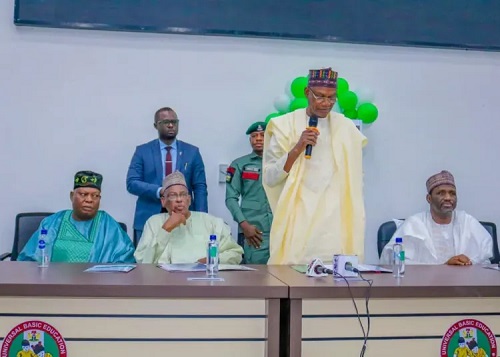This post has already been read 3193 times!
The Nigerian government has launched a new Teacher Internship Scheme (TIS) with $10.4 million in funding from the Korea International Cooperation Agency (KOICA). The scheme, developed by the Universal Basic Education Commission (UBEC), aims to provide support to teachers by equipping them with skills and knowledge in digital technology.
The funding will be used to establish smart schools in Nigeria, with a focus on digital content development for mathematics and science subjects. The scheme will also provide intensive training for education graduates over two years to transform them into “smart teachers” who can use technology to enhance the learning experience.
The Minister of Education, Prof. Tahir Mamman, emphasized the importance of integrating information and communication technology (ICT) into education, stating that Nigeria must move away from traditional teaching methods using blackboards and chalk. He commended the executive secretary of UBEC, Dr. Hamid Bobboyi, for the initiative, highlighting the role that well-equipped and knowledgeable teachers play in providing quality education.
Dr. Bobboyi emphasized that traditional teaching methods are no longer sufficient to prepare learners for the challenges of the 21st century. He cited the COVID-19 pandemic as an example of the need for alternative modes of education that enable learning to take place anywhere and anytime. The TIS aims to address this need by exposing Nigerian teachers to digital platforms and pedagogies.
The Country Director of KOICA, Mr. Son Sungil, confirmed the $10.4 million budget to support the establishment of smart schools in Nigeria. He pledged KOICA’s commitment to working with UBEC and other stakeholders to improve the future of Nigerian children.
The TIS is a response to the shortage of teachers with skills in smart education in Nigeria. By providing intensive training and incorporating technology into teaching practices, the scheme aims to create a new generation of teachers who can enhance the learning experience and prepare students for a globalized and competitive world.
Overall, the introduction of the Teacher Internship Scheme and the funding from KOICA signify the Nigerian government’s commitment to improving education through the integration of digital technology. By investing in teacher development and smart schools, Nigeria aims to enhance the quality of education and equip students with the skills they need for the future.



